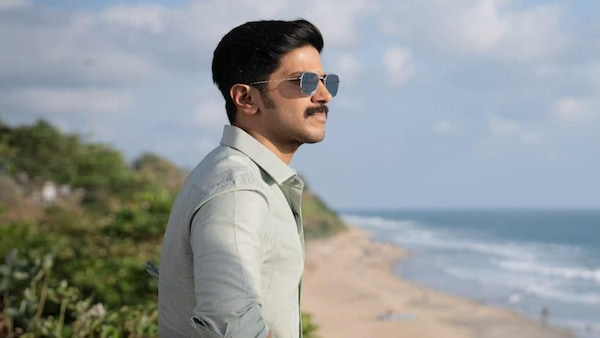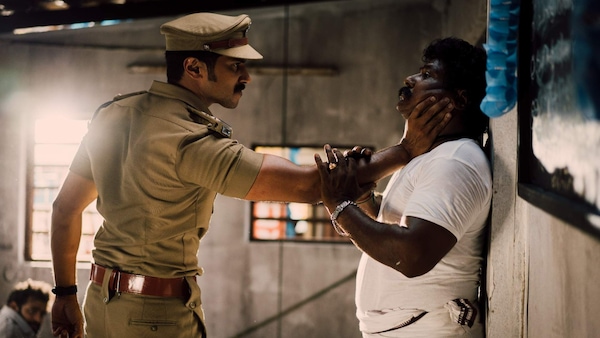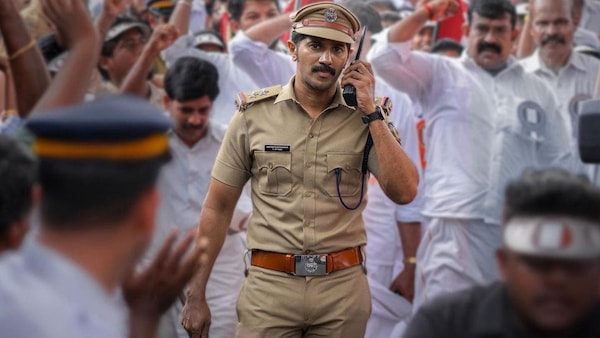Exclusive! Dulquer Salmaan: Want actors to have courage to do all kinds of films once OTT-theatre clash sorts out
Dulquer Salmaan, whose latest film Salute is streaming on Sony LIV, talks about working in the Rosshan Andrrews' investigation drama, the opportunities streaming platforms offer and why he finds it tough balancing work and family after the birth of his daughter Maryam

Last Updated: 01.56 PM, Mar 19, 2022
Just like Dulquer Salmaan’s films, one thing that you can always expect from the actor is to keep his interviews refreshing. He doesn’t stick to the usual stock answers that most stars these days do, and tells you exactly what’s on his mind, even when he is only trying to make sense of it all. So, it’s immediately relatable when the Malayalam star says what he liked most about his conflicted character of a police officer in Salute, which is currently streaming on Sony LIV, is how human he is.
In an exclusive interview with OTTplay, the Kurup star talks about working on his first direct-to-OTT release, the opportunities that streaming platforms offer and why he finds its tough balancing work and family, especially after the birth of his daughter Maryam.

Why did it take you 10 years to play a police officer?
Something had to connect for me, with the script. I really liked this one. When they first pitched the script, it felt like a real story, like reading about a real-life crime. I liked that Salute also had a family angle to it in parallel. It’s not a conventional police story at all that people expect me to do when I take up a cop role.
You had said Salute again pushed you out of your comfort zone. In what sense?
As in, people expect me to be charming, likeable or something on those lines. My character Aravind Karunakaran is conflicted; he wants to do the right thing but isn’t able to. It’s generally how the system works. It’s not like anybody is shown bad in the film as lot of the times you can’t stand up for what you want to; there are limitations. I liked all of that. I made him very human.
Bobby and Sanjay’s characters are almost always layered. In Salute, we see almost four different sides of Aravind at two phases in his life. As an actor, how do you approach such a character?
It sort of creeps into your head as soon as you hear the story. Even if I hear the narration of a film now, at the end of year too, somewhere it keeps playing on your mind – what is this guy like, how does he behave, small things like that. If the character is well defined by the writers, you have that guidance too. Obviously, I will have questions about his background. But essentially, if the writing is good, I feel that is a great guide. We shoot based on logistics like where we get permission to shoot today; it’s never linear. That is where a bound script helps, for instance, what has led up to this scene.
It's your first OTT release. Given that Salute was a film that was designed keeping in mind the OTT audience, how much did that influence its making and also the performances?
Actually, we conceived the film way before the pandemic. It was in my line-up. We began shooting it last March after the first lockdown. We were unsure if it had a theatrical future or not. So, we had these discussions with our OTT buyers from the get-go. This is why it doesn’t have songs or things to keep the theatrical audience entertained. It’s quite true to the narrative and sticks to that.
Also, during the shoot, I didn’t want it to look like a film that was shot during the lockdown. I wanted it to be outdoors and with crowds. So, those precautions were taken. We made no compromise on that. Otherwise, the structure and everything was designed for OTT.
Do you think that OTTs have opened up a new channel for actors where you can be part of films that you would have been hesitant to sign up for earlier as the chances of them working as theatrical releases were limited?
I think right now, there is a bit of clash that’s happening between OTTs and theatres, but I feel it’s something that will sort itself out. Once that happens, I just want us actors to have courage to do all kinds of cinema. It shouldn’t always be about massive box office. Of course, all movies must be profitable, but we should also then have the opportunity to experiment and tell great stories. And not throw in things to wake up people. I like that about the OTT platforms. But that said, I don’t know we will go about it unless the correction has happened on its own.
It's not like every small film is working in theatres either. People seem to now want to come to theatres for certain kinds of films, which are eventful or have the hype and excitement. Then it becomes a celebration. Otherwise, I feel we should have a parallel line of films that go direct (to OTT). Even that I am not fully confident as the streaming platforms cannot afford to keep buying direct-to-OTT releases. It works out best for them if it’s a post-theatrical release. They might be doing it initially to make a splash but I don’t know if that’s again going to be the future. So, based on the corrections, we have to slowly start designing projects.

Coming back to Salute, your character is someone who has trouble managing his personal and professional life with the case. You are someone who got married months before your acting debut. How did you strike that balancing act early on in your career?
First, I felt my life was flipped upside down; the world I knew was changed forever. But also, my wife (Amaal) was very young when we got married. She had no idea about cinema as she wasn’t exposed to that world. So, almost from the get-go, it was like a long-distance relationship. It is something that affects me, especially after my daughter was born. It is very difficult for me to leave them at home and go for shoots. And also, kids grow up so fast. So, it’s your loss if you aren’t there at that really adorable time in their lives. I now have a legit role to play in Maryam’s life and she needs me. So, that’s difficult. I live out of a suitcase; I am never kind of in one place. That is really tough. I think it applies to all people in cinema, especially actors because we jump from project to project.
Subscribe to our newsletter for top content, delivered fast.

